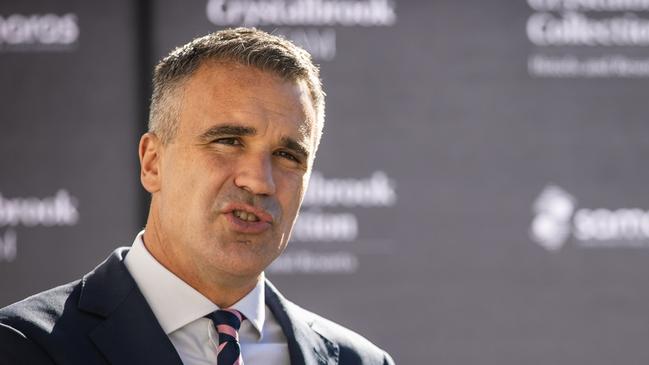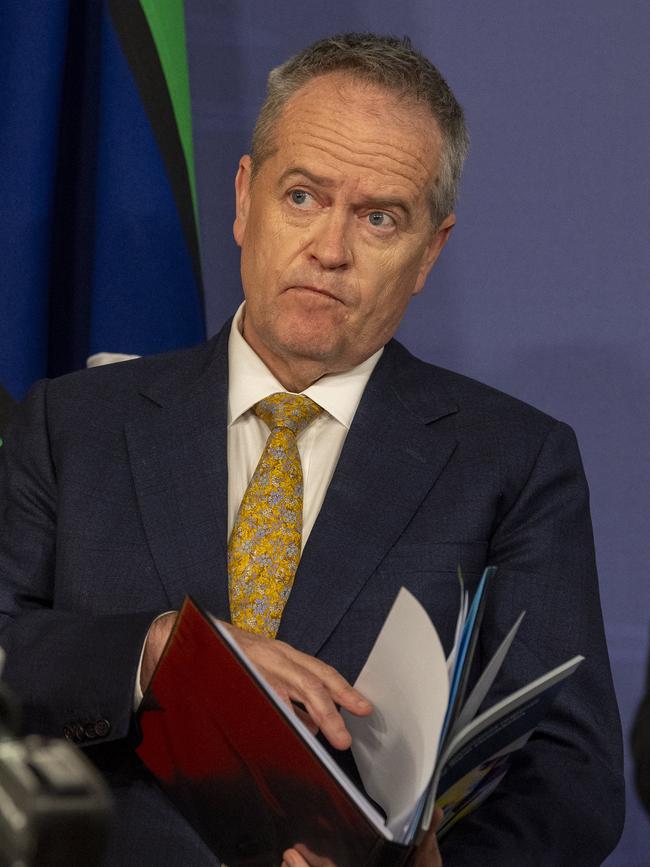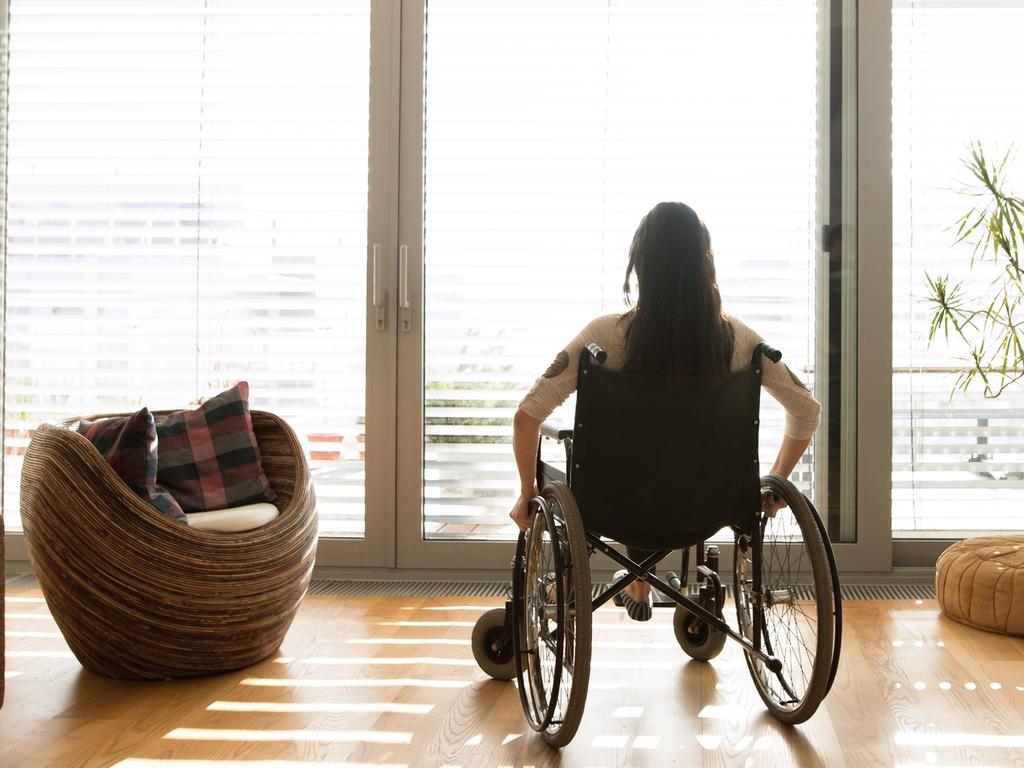Premiers send out a hijack alert over NDIS
Premiers are demanding Anthony Albanese and NDIS Minister Bill Shorten cede their ‘absolute authority’ over plans to redesign the scheme and give them a role in deciding who is eligible for the $44bn program.

Premiers are demanding Anthony Albanese and NDIS Minister Bill Shorten cede their “absolute authority” over plans to redesign the scheme and give them a role in deciding who is eligible for the $44bn program.
South Australian Premier Peter Malinauskas and his Tasmanian counterpart Jeremy Rockliff will represent the premiers in a meeting with Mr Shorten on Friday.
The three will thrash out growing concerns among the states that the Albanese government’s proposed legislation strips them of a say in determining the extent of the scheme, even though the states will be saddled with providing many of the supports required outside the NDIS.
Mr Malinauskas told The Australian that cutting the states out of the loop could have “very adverse consequences”, not just for the fiscal position of the states, but also for the lives of people with disabilities needing services.
He said the proposed NDIS bill dropped the current arrangement where the federal government consulted the states on decisions concerning the scheme’s design.
“The states aren’t averse to providing the services … but we have to ensure we’ve got a plan to achieve it and there’s funding arrangements and there’s capacity,” Mr Malinauskas said. “That requires collaboration between the states and the commonwealth, but the bill as it stands doesn’t allow for that kind of arrangement. It invests absolute authority in the federal government.
“If the federal government is going to start tinkering with the range of support provided under the NDIS and who is eligible for it, then states need to have a seat at the table to ensure we don’t see people slipping through the net.”
In a letter to Mr Shorten ahead of the meeting, seen by The Australian, Mr Malinauskas and Mr Rockliff noted the states were “co-funders and co-governors” of the NDIS, currently contributing 30 per cent of its cost.
“We particularly want to highlight our ongoing concern about the erosion of shared governance for the NDIS,” the letter said.
The fact two premiers are personally visiting Mr Shorten is a further sign disability reform is becoming a key political battleground. The state and federal governments are jockeying over how to fund and deliver a new disability system that will both preserve the NDIS for the most seriously disabled Australians and provide others with “foundational supports” outside the scheme.
The new system is an effort to rein in runaway NDIS costs, which reached $44.3bn in 2023-24 and without reform were projected to reach more than $100bn by 2033. Costs grew by more than 14 per cent last year. National cabinet has been forced to intervene to set a cost growth target of 8 per cent by July 2026.
There are more than 650,000 people currently on the NDIS, more than half aged under 18. The majority of those children are on the scheme with a diagnosis of autism or developmental delay. Twelve per cent of boys aged 5 to 7 are NDIS participants.
A review of the NDIS last year found that to keep it financially sustainable it should be catering to those with the most profound disabilities, with others supported in community settings outside the scheme. This would include services for children with less severe autism and developmental delay, meaning schools, early learning facilities and other community settings would need to ramp up their services.
A new bill to change the NDIS to give effect to some of the key elements of the review, including bringing the practice of “scheme top-ups” to an end is undergoing further review by a Senate committee. Mr Shorten had pushed hard to get the bill through parliament before the winter break, but opposition and crossbench senators sought a further eight weeks for review. He said this would cost the NDIS more than $1bn and set back hopes of meeting the 8 per cent cost growth target.

Clarity around where the line will be drawn between the NDIS and other disability support remains opaque, and the states are worried about the economic and emotional load falling on them without having the financial or human resources to deliver the necessary support.
They believe a deal struck late last year to divert more GST funding to the states to cover the cost of foundational supports, understood to be about $10bn over five years, falls far short of what will be required.
Mr Malinauskas said the federal government had guaranteed the states would be no worse off under the new disability arrangements, but there had been “a decided lack of detail about what that funding will be”.
Asked if the current disability funding issue could blow up state budgets, he said: “I think if it’s not done properly, the consequences could be very adverse, not just fiscally but more importantly on the people who need that support.
“Let’s take as an example a child who is autistic and receiving speech pathology, occupational therapy and other services (under the NDIS) that allow them to be more engaged in society and school. If the rules are changed so that the child no longer gets the same support, their family will reasonably expect someone else will provide it. In the past that role was performed by the states.
“That’s fine provided the states have the funding and capacity to be able to do it, but we currently don’t have it because we handed everything over to the federal government and the NDIS.”
The new bill as it stands could allow the federal government to tip that child into the state system without having to run the decision past the states, he said.
“This is actually a debate about ensuring people who have needs that are currently provided for by the NDIS don’t get cut loose without anything to fall back on,” Mr Malinauskas said. “And that fallback would inevitably end up in the lap of the states.”
Mr Malinauskas said he believed the federal government had good intentions to secure the best outcomes for people with disability and was confident that the talks could lead to progress in the sector.
Mr Shorten said he was “looking forward to constructive discussions on the NDIS with premiers Rockliff and Malinauskas”.








To join the conversation, please log in. Don't have an account? Register
Join the conversation, you are commenting as Logout